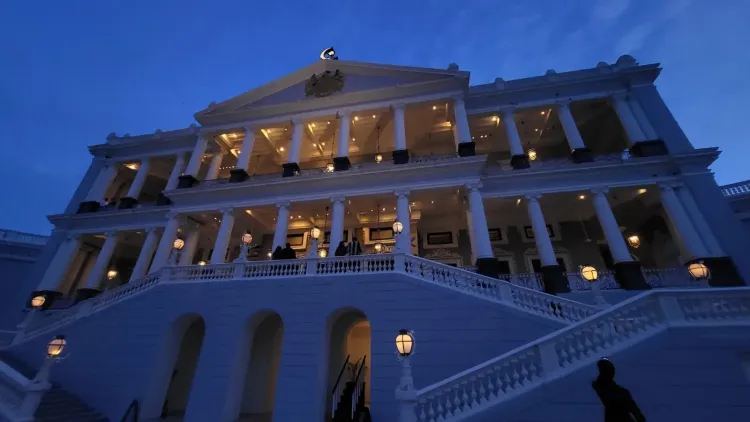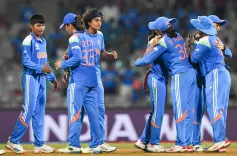Why Did the Hyderabad Court Dismiss the Partition Suit for the Nizam’s Palaces?

Synopsis
Key Takeaways
- Hyderabad court dismisses plea to reject partition suit.
- Case involves palatial properties of the Seventh Nizam.
- Nawab Najaf Ali Khan seeks partition among legitimate heirs.
- Legal complexities reflect broader cultural heritage issues.
- Trial will address ownership and valuation matters.
Hyderabad, Oct 23 (NationPress) A court in Hyderabad has ruled against the interlocutory application submitted by Azmet Jah and Shekhar Jah regarding the partition of the palatial properties of the Seventh Nizam, Nawab Mir Osman Ali Khan.
The City Civil Court has permitted the partition lawsuit initiated by Nawab Najaf Ali Khan, the grandson of the Seventh Nizam, to progress to a full trial.
Azmet Jah and Shekhar Jah, offspring of Prince Mukarram Jah—also known as Nawab Mir Barkat Ali Khan, the titular Eighth Nizam who died in 2023—had requested the court to dismiss Najaf Ali Khan’s partition suit.
Their legal representative contended that the plaintiff holds constructive possession of the ancestral estates as a legitimate heir of the Seventh Nizam, and that topics of possession, ownership, and property valuation necessitate a comprehensive trial.
Nawab Najaf Ali Khan’s suit aims to achieve partition and separate possession of five historically significant palaces belonging to the Seventh Nizam, which include the Falaknuma Palace, Chowmahalla Palace, Purani Haveli, King Kothi Palace, and Harewood & Cedars Bungalow located in Ooty, Tamil Nadu, collectively valued at over 10,000 crores.
This case involves 232 defendants, which includes the Indian Hotels Company Private Limited, the operator of the Taj Falaknuma Palace, a luxury hotel.
Nawab Najaf Ali Khan asserts that the assets and heritage of the Seventh Nizam should be shared among all rightful heirs, rather than being controlled by a single individual.
He filed the suit in 2021, challenging the exclusive rights and enjoyment of these properties by Prince Mukarram Jah.
After the death of the Seventh Nizam on February 24, 1967, Prince Mukarram Jah was acknowledged as his successor by the Government of India.
Nawab Najaf Ali Khan argues that the private properties of the Seventh Nizam must be distributed among all his legitimate heirs according to Islamic Shariat Law, entitling his 34 children to inherit the 'Matruka.'









